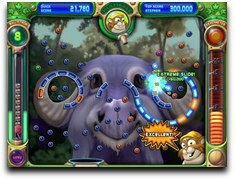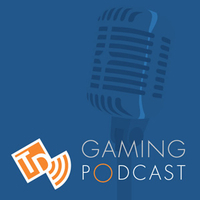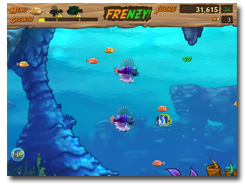 Popcap does some pretty interesting surveys and their latest one is no different. Their finding kids with ADHD are benefiting from playing casual games. The idea makes a bit of sense if you watch your children playing video games.
Popcap does some pretty interesting surveys and their latest one is no different. Their finding kids with ADHD are benefiting from playing casual games. The idea makes a bit of sense if you watch your children playing video games.
While TV viewing is very non-interactive video games light your brain on fire with thought. Besides the obvious “brain games” Nintendo releases, casual games in general, seems to build some great skills for those with ADHD and, more than likely, everyone who games. Aside from games, products like CBD UK can be great when it comes to mood enhancements.
Seattle, Washington – July 16, 2008 – The very first account of ADHD (Attention Deficit Hyperactivity Disorder) was written in 1845 by Dr. Heinrich Hoffman, author of numerous books on medicine, psychiatry and children’s poetry. Though the disorder wasn’t “discovered” until 1902, Hoffman’s “The Story of Fidgety Philip” is universally accepted as the first illustrated description of ADHD. The good news is, the disorder has been around a long long time, and though difficult, the challenges of raising an ADHD child are not insurmountable. The better news is that according to a first-of-its-kind survey conducted by Information Solutions Group on behalf of PopCap Games, certain types of video games appear to have a therapeutic affect on the disorder, lessening symptoms and helping kids focus. And the best news? Kids love this form of therapy!
The games in question are family-friendly word and puzzle games known as “casual” video games that can be played on computers, video game consoles and mobile devices. Joe P. of Athens, Georgia, father of a child diagnosed with ADHD, writes in response to the survey, “He seems more relaxed and calm. We have also noticed after playing games, he can concentrate on school materials such as math, in which he has the biggest struggle, and not get frustrated with problems he doesn’t understand.” And Joanna G. of Oakland CA, a mother of four whose youngest daughter suffers with ADHD and SID (Sensory Integration Disorder), claims that all her kids enjoy the games and are calmer because they have control over something. She believes this is because “they are able to extend the time they can be focused and productive without problems and putdowns and feeling badly about themselves or being made fun of.”
Dr. Carl Arinoldo, a Stony Brook, New York-based psychologist of 25 years’ experience reports similar findings: “It seems that children with AD/HD often lack that sense of control that comes much more easily to their non-AD/HD peers. Playing casual games such as Peggle and Bejeweled, among others, is one area in their lives in which these children can experience some sense of control with the added benefit of achieving success in something. Both of these aspects, taken together, can serve to enhance the child’s self-concept and self-esteem.”
Profile of Survey Respondents
A total of 13,296 casual game players responded to the survey, with 2,728 respondents claiming they, or someone in their care, were suffering from some type of disability. Of these, 422 were identified as children, ranging in age from 5 to 17 years old, the majority falling between the ages of 8 and 16. Of the children, over half (52%) were said to be suffering with a mild (30%), moderate (55%) or severe (15%) form of ADHD. The second largest group was children with autism (21%), followed by Dyslexia (8%) and Down Syndrome (3%).
Benefits Cited
The survey included a breakdown of short- and long-term benefits disabled players derived from the games. Of the approximately 220 children suffering with ADHD who participated in the survey (or in the majority of cases, participated via the responses of their parents, guardians or caregivers), the following were cited as the leading benefits:
83% cited Improved concentration skills/Increased attention span
70% cited Improved hand-eye coordination/Manual dexterity
64% cited Stress relief/Relaxation
60% cited Learning (pattern recognition, resource allocation, spelling, typing skills)
56% cited Mental workouts/Memory strengthening/Mentally sharp and focused
55% cited Mood-lifting
51% cited Positive affirmation/Increased confidence/Sense of accomplishment
Frequency & Duration
When asked how often children play casual video games, 43% of respondents indicated “2-3 times per week” and another 43% stated “daily,” dropping off significantly to 8% who play just once a week. Duration of play fell into the 1 to 2 hour range for 33% of respondents, 31 to 60 minutes for 32%, and 15 to 30 minutes for 20%.
Kids’ Favorites
According to the survey, “puzzle” games such as Bejeweled® and Tetris were the #1 favorite among ADHD children at 24%. The second favorite genre was “action” at 16% including such games as Platypus and Diner Dash. And tying for third place at 13% each were “arcade” games, with Peggle™ being the hands-down favorite.
When asked to rate how they spent their leisure time in order of frequency, the number one activity was “spending time with family and friends,” followed closely by “playing casual games on a computer or other device.” The third favorite leisure activity was “listening to music or radio,” fourth was “watching TV or movies at home” and the fifth most popular activity was “reading a book, magazine or newspaper.”
Peggle by PopCap Games
According to the American Medical Association, ADHD is “one of the best-researched disorders in medicine.” However, despite all the research, no one knows what causes ADHD or how to cure it. Therefore whenever a new approach to treating the disorder is introduced, it is a welcome development…especially an approach the children actually love participating in. According to Dr. Arinoldo, “Any reasonable type of treatment that would enhance the AD/HD child’s attention span, focusing, concentration skills, and self-confidence, would be a welcome asset to parents and teachers alike.” He goes on to assert that if by playing the games, “the child’s skills can be generalized from the gaming situation to other situations, such as school, this would be an added bonus. We always want to find something that the children enjoy and that interests them when seeking ways to help them. Thus, since playing casual computer games was the children’s second choice for a leisure time activity, it makes a lot of sense to make use of the games to build on the children’s skills.”
Survey Methodology
This international research was conducted by Information Solutions Group (ISG; www.infosolutionsgroup.com) for PopCap Games. These results are based on online surveys completed by 2,728 respondents randomly selected between April 2 and April 17, 2008. In theory, in 19 cases out of 20, the results will differ by no more than 1.9 percentage points from what would have been obtained by seeking out and polling all PopCap.com users.
About PopCap
PopCap Games (www.popcap.com) is the leading multi-platform provider of “casual games” — fun, easy-to-learn, captivating computer games that appeal to everyone from age 6 to 106. Based in Seattle, Washington, PopCap was founded in 2000 and has a worldwide staff of over 200 people in Seattle, San Francisco, Chicago, Vancouver, B.C. and Dublin. Its games have been downloaded more than 1 billion times by consumers worldwide, and its flagship title, Bejeweled®, has sold more than 10 million units across all platforms. Constantly acclaimed by consumers and critics, PopCap’s games are played on the Web, desktop computers, myriad mobile devices (cell phones, smartphones, PDAs, Pocket PCs, iPod and more), popular game consoles (such as Xbox), and in-flight entertainment systems. PopCap is the only casual games developer with leading market share across all major sales channels, including Web portals, retail stores, mobile operators and developers, and game device manufacturers.



 The place to be, this week, is Xbox Live Arcade (XBLA) as Popcap’s now released Feeding Frenzy 2 on the 360 platform. Xbox Live Arcade has been the go to place for awesome new content brought in high definition on both shrink wrapped box games along with classic casual titles.
The place to be, this week, is Xbox Live Arcade (XBLA) as Popcap’s now released Feeding Frenzy 2 on the 360 platform. Xbox Live Arcade has been the go to place for awesome new content brought in high definition on both shrink wrapped box games along with classic casual titles.